QOTD: Stick or Carrot?

Yesterday we covered the proposed EPA rules and regs from the Biden administration.
Those who pay attention to such things might notice that the proposed rules are pretty aggressive. Certainly, that's what the automotive-industry lobbyist said. And Matt argued in his piece that the government shouldn't be forcing EV adoption down our throats -- and the approach might even fail to do what it's intended to do.
I think I'm less sensitive than most to rules/mandates that are meant to benefit society -- a lot of people don't like to be told what to do even if it's good for them/good for us all (see: Covid mask/vaccine mandates). We react that way out of stubbornness, or resistance to change, or perhaps a belief that we're adults and we don't need to be bossed around because we'll do it ourselves.
But even I raised an eyebrow -- and I don't totally disagree with Matt. If the new rules are forcing people to buy EVs yet EVs (and new cars, in general, are too pricey) and/or charging isn't sufficient to support a transition to EVs, well, that's an obvious problem.
Matt is also correct when it comes to the fact that EVs have their own climate concerns.
On the other hand, automakers ofttimes need a nudge to do what's best for the climate and society as a whole. So do most businesses/industries. Because sometimes their interest in making money isn't aligned with making expensive long-term changes for the sake of the climate and the good of society -- even if it can be argued that making said changes would actually be good for the business (not to mention that industry execs are part of society. They don't live a vacuum).
It makes logical sense -- if automakers could simply pump out gas guzzlers and make more money in the short term, why wouldn't they? Who needs to worry about tomorrow?
Yes, that's a vast oversimplification for the sake of brevity. Anyway, yesterday's news has me coming back to a topic we've covered before -- when it comes to environmental regulations, especially those that might speed the transition to EVs, should the government be using more of a carrot-or-stick approach?
In other words, are strict rules that force change better? Some would say yes, especially in this case -- we'll cut carbon emissions more quickly, and it's possible that stricter rules will spur innovation. Others would say no. They'd argue that for the reasons Matt outlined yesterday, we're not ready to transition to EVs that quickly, and it would be bad for the industry. Others are philosophically opposed to too much government intervention in private enterprise. Some will argue that regulations lead to unintended consequences. Others would argue that if the government and automakers work together, that's preferable to the adversarial relationship that could develop between companies and the government as automakers push back against oppressive regs.
Whew. That's a lot -- and I even cut down some of my thoughts. But it's a complicated issue, both philosophically and in practical terms. Personally, I think there needs to be a mix of carrot and stick -- neither approach works on its own. But that's just me.
In terms of these rules -- my initial reaction is they are well-intended but maybe too aggressive, and the concerns about EV affordability and charging infrastructure are real obstacles to progress that must be accounted for and not just excuses made by a recalcitrant industry.
I also wonder if the government took the "ask for a lot and then back down and compromise" approach to negotiations.
Again, that's my take. What say you?
Sound off below.
[Image: Max Lirnyk/Shutterstock.com]
Become a TTAC insider. Get the latest news, features, TTAC takes, and everything else that gets to the truth about cars first by subscribing to our newsletter.

Tim Healey grew up around the auto-parts business and has always had a love for cars — his parents joke his first word was “‘Vette”. Despite this, he wanted to pursue a career in sports writing but he ended up falling semi-accidentally into the automotive-journalism industry, first at Consumer Guide Automotive and later at Web2Carz.com. He also worked as an industry analyst at Mintel Group and freelanced for About.com, CarFax, Vehix.com, High Gear Media, Torque News, FutureCar.com, Cars.com, among others, and of course Vertical Scope sites such as AutoGuide.com, Off-Road.com, and HybridCars.com. He’s an urbanite and as such, doesn’t need a daily driver, but if he had one, it would be compact, sporty, and have a manual transmission.
More by Tim Healey
Latest Car Reviews
Read moreLatest Product Reviews
Read moreRecent Comments
- 1995 SC I will say that year 29 has been a little spendy on my car (Motor Mounts, Injectors and a Supercharger Service since it had to come off for the injectors, ABS Pump and the tool to cycle the valves to bleed the system, Front Calipers, rear pinion seal, transmission service with a new pan that has a drain, a gaggle of capacitors to fix the ride control module and a replacement amplifier for the stereo. Still needs an exhaust manifold gasket. The front end got serviced in year 28. On the plus side blank cassettes are increasingly easy to find so I have a solid collection of 90 minute playlists.
- MaintenanceCosts My own experiences with, well, maintenance costs:Chevy Bolt, ownership from new to 4.5 years, ~$400*Toyota Highlander Hybrid, ownership from 3.5 to 8 years, ~$2400BMW 335i Convertible, ownership from 11.5 to 13 years, ~$1200Acura Legend, ownership from 20 to 29 years, ~$11,500***Includes a new 12V battery and a set of wiper blades. In fairness, bigger bills for coolant and tire replacement are coming in year 5.**Includes replacement of all rubber parts, rebuild of entire suspension and steering system, and conversion of car to OEM 16" wheel set, among other things
- Jeff Tesla should not be allowed to call its system Full Self-Driving. Very dangerous and misleading.
- Slavuta America, the evil totalitarian police state
- Steve Biro I have news for everybody: I don't blame any of you for worrying about the "gummint" monitoring you... but you should be far more concerned about private industry doing the same thing.



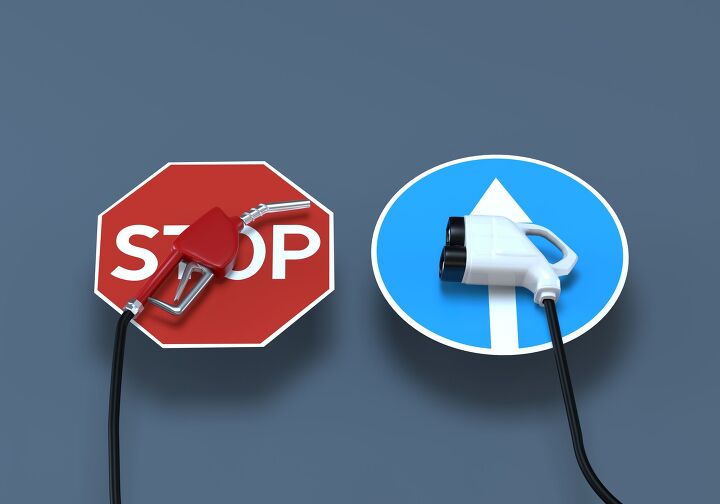















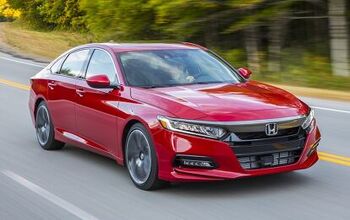
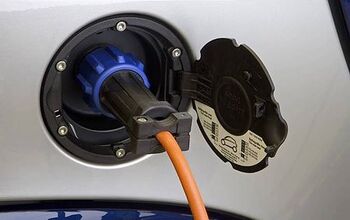
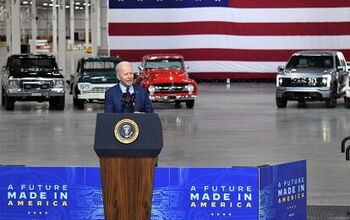
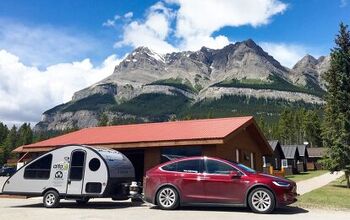











Comments
Join the conversation
Art Vandelay,
I don't understand your question.
Luke42,
I'm not sure what percentage of our taxes go to defending Big Oil. Some part, certainly.